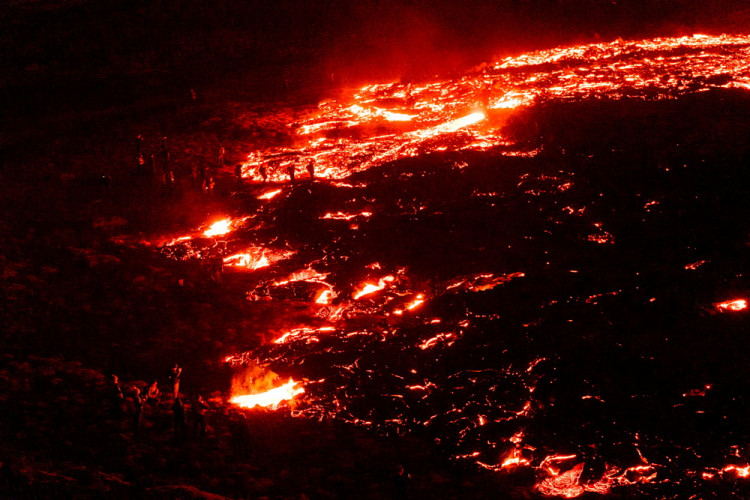A volcano in southwest Iceland dormant for 6,000 years has erupted. However, its activity, while spectacular, isn't a threat to the capital Reykjavik and other nearby cities.
The eruption of Fagradals Mountain on the Reykjanes Peninsula was caught on video and confirmed by the Icelandic Meteorological Office. Video on its Facebook page shows lava flowing at a "slow pace."
The Department of Emergency Management said it didn't expect to have to remove people from the area because the volcano was in a remote valley about 2.5 kilometers (1.5 miles) from the closest road.
Fagradals Mountain was dormant for 6,000 years and no volcano has erupted on the Reykjanes Peninsula in 781 years.
There were indications of a potential eruption - regular earthquakes over the preceding three weeks. However, volcanologists were surprised because volcanic activity had subsided recently.
Iceland police tweeted late last week that residents should remain indoors and keep windows closed. According to the U.S. Environmental Protection Agency, as volcanoes erupt lava emits highly dangerous gases - including sulfur dioxide, carbon dioxide and hydrogen fluoride.
This past weekend the meteorological office reported pollution from the eruption "is not expected to cause much discomfort for people except close to the source of the eruption."
The office said at the same time volcanic activity had "somewhat decreased" since late last week. Its scientists reported lava covered fewer than one square kilometer and there was no reason to be concerned for the closest residents. According to the office, eruptive fissures - fractures in the earth's surface from which lava escapes - are 500 meters to 700 meters long.
Since Feb. 24, southwest Iceland has experienced a "swarm" of thousands of earthquakes. Dozens had magnitudes of 3 or more.
The office recorded 400 earthquakes in a period of seven hours Thursday. Despite the number there was "somewhat less" seismic activity than on other mornings when there have been about 1,000 earthquakes.






